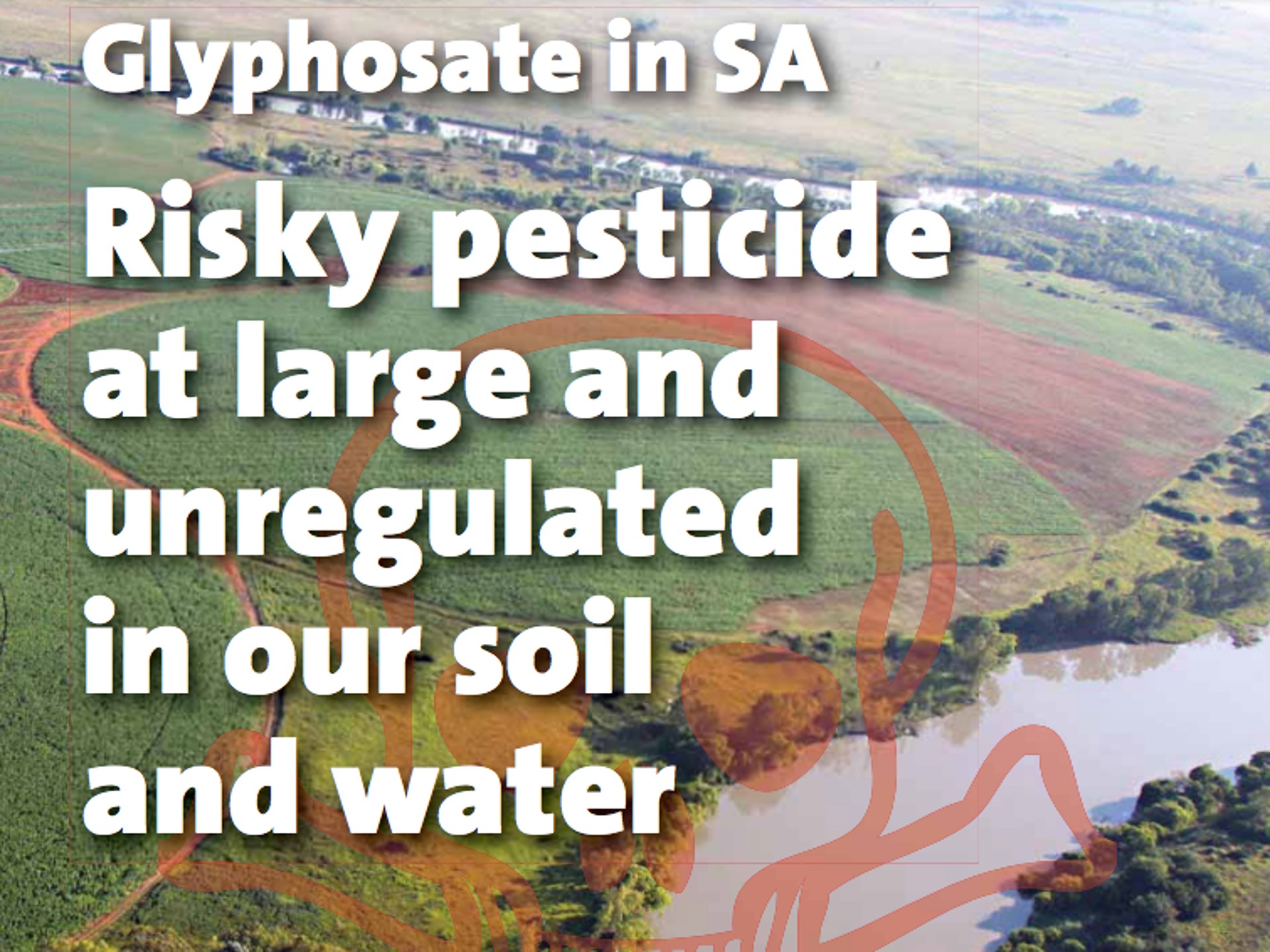Latest Resources

2 July 2016
Genetically Modified (GM) Soya in South Africa: Status Quo Report
This briefing paper presents the status of genetically modified (GM) soya in South Africa. GM Soyabean seed owned by Monsanto and genetically engineered to withstand the herbicide glyphosate, accounts for 90% of all soya bean production in South Africa. Download the report.

18 April 2016
Zimbabwean smallholder support at the crossroads: Diminishing returns from Green Revolution seed ...
This scoping report is published jointly by the African Centre for Biodiversity (ACB and the Zimbabwe Small-Scale Organic Farmers’ Forum (ZIMSOFF). The report focuses on government and donor farm input subsidy programmes (FISPs) and seed aid in facilitating the spread of Green Revolution technologies and raises questions about who really benefits from these programmes. It […]

9 November 2015
Which way forward for Zambia’s smallholder farmers: Green Revolution input subsidies or agroecology?
In this report, we provide a critique of the Green Revolution Farmer Input Subsidy project in Zambia, looking at its impacts particularly for small holder farmers and their seed systems.

20 May 2014
Below the belt, below the breadline – South Africa’s inequitable and GM contaminated ...
The African Centre for Biosafety (ACB) has today brought into sharp focus the white bread industry in South Africa with the release of its new report “GM Contamination, Cartels and Collusion in South Africa’s Bread Industry.’ The report shows that the white bread tested contains high levels of Monsanto’s genetically modified (GM) soya in the […]

8 October 2012
Glyphosate in SA: Risky pesticide at large and unregulated in our soil and water
The research shows that although glyphosate (a weed killer) is ubiquitous throughout South African agriculture, it poses many environmental risks and yet there is precious little research done to monitor and manage its environmental impacts. Read more here.

9 May 2011
Critique of SANBI’s Studies on Monsanto’s MON 810
During early in 2011, the South African National Biodiversity Institute (SANBI) published a report titled, Monitoring the Environmental Impacts of GM Maize in South Africa. The report was a culmination of a study by the Environmental Biosafety Cooperation Project (EBCP) aimed at developing a framework for monitoring of insect resistant maize, Mon810, belonging to Monsanto. […]

12 May 2010
Traceability, segregation and labelling of genetically modified products in South Africa: A Posit...
South Africa has promulgated national legislation, the Consumer Protection Act (CPA), which creates an opportunity for the mandatory labelling of certain foodstuffs containing or which are genetically-modified organisms (GMOs). The Act sets out a number of consumer rights that have relevance to the sale of products with genetically modified components. These include the right to […]

17 April 2010
Scottish Parliament Motion on GM entry refusal, Kenya, South Africa
*S3M-6119 Bill Wilson: Biodiversity Coalition Opposes GM Contamination. That the Parliament notes reports that 40,000 tons of genetically modified (GM) maize from South Africa have been refused entry to Kenya as a result of protests led by the Kenya Biodiversity Coalition. Further notes, with reference to motion S3M-05873 by Bill Wilson ‘Who Benefits from GM […]

7 February 2010
A profile of Monsanto in South Africa
Monsanto is a globally dominant company in the agrochemical, seed and agricultural biotechnology sector. It has been active in the agrochemicals market in South Africa since 1968, and now owns almost all traits used in the South African GM crop market. Thanks to the purchase of local seed companies, Sensako and Carnia, in the late […]

5 January 2010
Status of de facto moratorium on GM commodity clearance/import applications in SA
The South African government has granted a large number of commodity import permits over the years, enabling millions of tons of GM maize, soya and canola to be imported into South Africa. However, during September/October 2005, the Department of Trade and Industry (DTI), a member of the Executive Council (EC): GMO Act, raised several concerns […]
